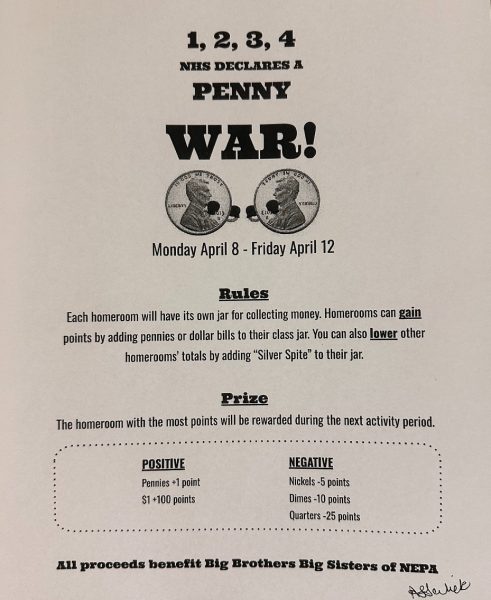AP vs. dual enrollment
One of the hardest things about being a high school student is that you are forced to make multiple tough decisions that end up having a massive impact on your future. Even though you’re just teenagers, it is expected that you will figure out what you want to do with your lives for the next forty years.
This time of your life is very hectic and can easily overwhelm you. You are faced with one of these tough decisions when course selection time rolls around in your junior year, when the aspiring students of GNA are asked whether they want to take dual enrollment classes at LCCC, Wilkes University, or King’s College or if they would rather stay here on the GNA campus and take AP classes.
Luckily, The GNA Insider is here to help.
Dual enrollment and AP classes both allow you to get a jump start on your furthering education by accumulating college credits while still in high school at a reduced price. They also help you build a strong transcript for your final year of high school which will make your application stand out to college admissions officers. Stepping onto a college campus with a couple of credits already under your belt will earn you certain privileges such as preferred housing. Having a few of your general education classes completed will let you to start the classes beneficial to your degree much sooner. Loading up your senior schedule with these challenging courses will without a doubt require a lot of hard work, but all that hard work will pay off when you graduate GNA prepared to take on college.
There are several advantages to taking AP classes as opposed to dual enrollment. One of them is that you can potentially earn more credits per class depending on the college you choose to go to. For example, because AP English and Composition is technically two classes, at Ithaca College, a ⅘ on the AP exam is worth six credits as opposed to the three that a college class is usually worth.
The cost of the AP test is $93 whereas the cost of a dual enrollment class is $64 per credit. That means that your typical three credit class will cost $192, which is more than double in comparison.
Because an AP class will show up heavier on your transcript than a dual enrollment class, depending on the college you choose, you can get more bang for your buck in the credit department.
The best part about AP is that you don’t have to leave the GNA campus. You won’t have to worry about spending extra gas money or finding a ride to class every day.
In college, holidays like Veterans Day, Columbus Day, and President’s Day will not get you out of school like they will at GNA. If you are an involved student and miss a lot of school for extracurricular activities, your high school teachers will see that you have an excused absence and it won’t be as big of a deal as it would be at a college.
Lastly, it is somewhat intimidating to be in a college classroom surrounded by people who you don’t know. You will not have this problem in an AP class because you’ll be taking it with people you have been in class with since Kindergarten.
By far, the best thing about dual enrollment is that the classes are only two or three times a week. This means that on the days you don’t have class, you can either sleep in or leave school early.
After you take your finals, you’ll have a break from dual enrollment for a few weeks before the next semester begins. Although AP credits are more widely accepted in the collegiate world, here the credits you are trying to accumulate are not all riding on one test. A passing grade at the end of the semester is all you need to earn dual enrollment credits. You will definitely earn 6 college credits in a dual enrollment format because you take two classes a year, one in each semester. Earning an “A” in one of these classes will translate to a 100 on your report card, even if you didn’t have a perfect score on every assignment you completed. Although these classes are weighted lighter than an AP class, they are still slightly heavier than an honors course. With dual enrollment, you have a greater amount of classes to choose from and are not restricted to the four AP classes that GNA offers.
At the end of the day, it’s your choice. While both AP and dual enrollment classes are great ways to prepare yourself for college, they both have their pros and cons. No matter what you choose, you will be challenging yourself with class that will hold you to higher standards and will improve you overall as an individual.
When you are filling out your course selection sheets, it comes down to which one of these programs will best fit your individual needs. During the next few months, life is going to throw a lot at you and there is really nothing you can do to slow it down. The only way you will get through is if you take in as much information as possible, make educated decisions, and enjoy yourself.
Picture: GNA students Evan Stecco, David Mash, Madison Hoover and their LCCC professor Mr Shubilla

My name is Eric Jeffries, and I am a senior at Greater Nanticoke Area High School. In the fall, I play football and hold the honor of team captain. Outside...











